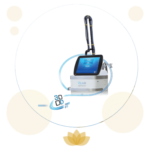
Dental crowns are an effective solution for restoring damaged teeth. These dental restorations are designed to cover the damaged tooth, protecting it from further damage while restoring its functionality. Dental crowns are used to address various dental issues, such as broken or cracked teeth, tooth decay, and root canal therapy. If you have recently received a permanent crown, you may be wondering if it is safe to eat normally with it. Here are some things to consider.







